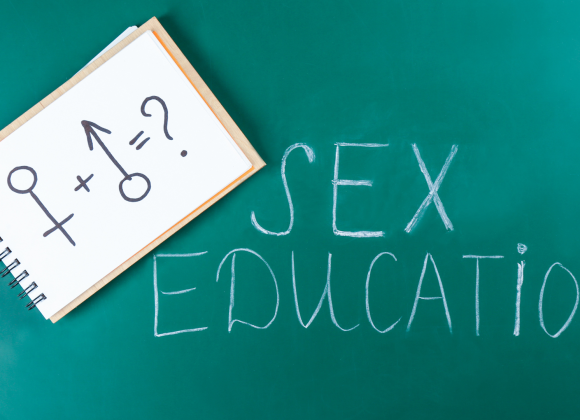Indian parents, teachers and relatives often ask, “What’s next after 10th board? Should one pursue Arts, Science, or Commerce?” Teachers also set boundaries, suggesting that students who score above 90% should opt for Science. But what happens after that—what should they do next? What comes after 10th, 12th, or graduation? Are these decisions made based on the student’s interests and career aspirations, or are they simply reinforcing traditional paths? Schools and colleges, too, frequently arrange exams, sometimes every month or even every week, but the bigger question remains—are they truly providing the right guidance to make students job-ready, or are they focused merely on academic assessments?
This becomes even more pressing when we examine the unemployment rate in India. According to the Periodic Labour Force Survey (PLFS), the unemployment rate in urban areas for individuals aged 15 years and above stood at 6.4% between October and December 2024, with 5.8% for males and 8.1% for females. If the education system is genuinely invested in providing quality education, why are so many students, despite their academic achievements, struggling to secure employment? What is preventing them from transforming their qualifications into stable careers?
Degree in Hand, No Job in Sight: What’s Wrong with India’s Education Model?
1. Rote Learning: An Overreliance on Memorization

Rote learning, a widely used educational method in India and many other countries, involves memorizing information through repetition without necessarily understanding the underlying concepts. Students are often required to memorize textbooks, facts, formulas, and procedures, which they later recall in exams. While rote learning may help students retain information in the short term, it has significant limitations when it comes to developing deep understanding or critical thinking skills.
The emphasis on rote learning in the education system can significantly impact a student’s job readiness. In today’s competitive job market, employers are looking for individuals who can think critically, solve complex problems, and apply their knowledge in real-world scenarios. Rote learning, however, does not prepare students for these challenges. As a result, many graduates struggle to transition from the classroom to the workplace, as they lack the practical skills and deeper understanding needed to succeed in dynamic work environments.
2. Mismatch Between Education and Industry Requirements
One of the biggest challenges facing Indian graduates today is the growing disconnect between what is taught in educational institutions and the skills required in the job market. While students spend years earning degrees, many struggle to secure employment because their education does not align with industry demands. This mismatch between academic learning and practical skills is a significant factor contributing to the rising unemployment rates among graduates.
3. Outdated Curriculum and Lack of Practical Exposure
Many universities and colleges in India continue to follow outdated syllabi that do not reflect current industry trends. Rapid advancements in technology, business practices, and industry standards require a curriculum that evolves accordingly. However, in many institutions, subjects are taught in a theoretical manner without incorporating practical applications. As a result, students graduate with bookish knowledge but lack hands-on experience, making it difficult for them to adapt to real-world job roles.
4. Focus on Degrees Over Skills

In India, there is a strong societal emphasis on earning degrees rather than acquiring relevant skills. Parents, teachers, and even employers often prioritize formal qualifications over practical abilities. This leads to a situation where students pursue higher education simply to obtain a certificate rather than to develop competencies required for employment. Many graduates, despite having impressive academic records, struggle in job interviews because they lack problem-solving skills, critical thinking, and the ability to apply their knowledge in practical scenarios.
5. Lack of Soft Skills and Professional Training
In addition to technical skills, employers look for candidates with strong communication skills, teamwork, leadership qualities, and adaptability. Unfortunately, most Indian colleges do not focus on training students in these soft skills. As a result, even well-educated graduates find it difficult to communicate effectively in interviews, collaborate in team-based environments, or demonstrate initiative in the workplace.
From Classroom to Workplace: Solutions for a Job-Oriented Education System
To address the gap between education and employment, India must shift towards a more skill-based and job-oriented learning approach. The following solutions can help bridge this divide and prepare students for the evolving job market.
1. Curriculum Reform: Aligning Education with Industry Needs
Educational institutions must regularly update their curricula to reflect industry trends and technological advancements. This includes:
- Introducing industry-relevant subjects such as data science, AI, cybersecurity, and digital marketing.
- Encouraging interdisciplinary learning, combining technical knowledge with business, communication, and problem-solving skills.
- Making practical training and hands-on projects a core part of all degree programs.
2. Skill-Based Learning Over Rote Memorization
Instead of focusing on memorization, schools and colleges should emphasize skill development and conceptual understanding. This can be achieved by:
- Adopting a project-based learning approach, where students solve real-world problems.
- Incorporating case studies and simulations to encourage analytical thinking.
- Encouraging students to participate in competitions, hackathons, and industry projects to develop problem-solving skills.
3. Emphasis on Soft Skills and Professional Development
Employers value communication, teamwork, leadership, and adaptability as much as technical knowledge. To improve these, institutions should:
- Introduce mandatory soft skills training in the curriculum.
- Conduct mock interviews, resume-building workshops, and public speaking exercises.
- Encourage participation in group discussions, debates, and extracurricular activities to enhance interpersonal skills.
India has long been an educational hub, producing some of the finest minds who have contributed significantly across various fields worldwide. Indian graduates have excelled in technology, medicine, finance, and numerous other industries on the global stage. However, the situation is now reversing, with many students struggling to secure employment even after completing higher education. The rising unemployment rate and the growing disconnect between academic learning and industry needs highlight the urgent need for reform.
If India wants to maintain its reputation as a powerhouse of talent and innovation, it must shift its focus from rote learning to skill-based, job-oriented education.




